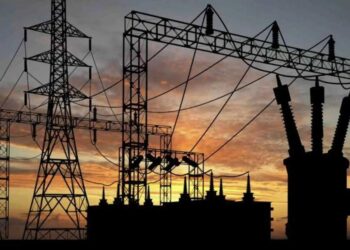Amnesty International (AI) has accused Shell Development Company of Nigeria of complicity in the “horrific crimes” committed by the Nigerian military in Ogoniland.
AI said its records, internal company documents, and witness statements show Shell played a role in the “murder, rape and torture” of some citizens in Ogoni.
A statement issued by the organisation on Tuesday said the findings are contained in its new report entitled ‘A Criminal Enterprise?’.
It said the alleged crimes were as a result of the military’s campaign “to silence” the Ogoni people’s protests against Shell’s pollution of the area through oil spills in the 1990s.
“The evidence we have reviewed shows that Shell repeatedly encouraged the Nigerian military to deal with community protests, even when it knew the horrors this would lead to – unlawful killings, rape, torture, the burning of villages,” Audrey Gaughran, director of global issues at AI, said in the statement.
“In the midst of this brutal crackdown Shell even provided the military with material support, including transport, and in at least one instance paid a military commander notorious for human rights violations. That it has never answered for this is an outrage.
“It is indisputable that Shell played a key role in the devastating events in Ogoniland in the 1990s, but we now believe that there are grounds for a criminal investigation.”
AI said during the Ogoni crisis, Shell and the Nigerian government operated as “business partners” and had regular meetings to discuss the “protection of their interests”.
It said: “Internal memos and minutes from meetings show Shell lobbying senior government officials for military support, even after the security forces had carried out mass killings of protesters.
“They also show that on several occasions Shell provided logistical or financial assistance to military or police personnel when it was well aware that they had been involved in murderous attacks on defenceless villagers.”
Citing instances where the alleged acts of complicity were carried out, AI said: “On 29 October 1990, Shell requested ‘security protection’ from an elite paramilitary police unit called the mobile police at its facility in Umuechem village, where peaceful protests were taking place. Over the next two days, the mobile police attacked the village with guns and grenades, killing at least 80 people and torching 595 houses. Many of the bodies were dumped in a nearby river.
“In 1993, shortly after it had left Ogoniland, Shell repeatedly asked the Nigerian government to deploy the army to Ogoniland to protect a new pipeline which was being laid by contractors. This resulted in the shooting of 11 people at a village called Biara on 30 April, and the shooting to death of a man at Nonwa village on 4 May.
“Less than a week after the shooting at Nonwa, Shell executives had a series of meetings with senior government and security officials. The minutes of these meetings show that, rather than raising concerns about the shootings of unarmed protesters, Shell was actively lobbying for the government and the security forces to allow them to continue work in Ogoniland – and was offering ‘logistical’ help in return.”













